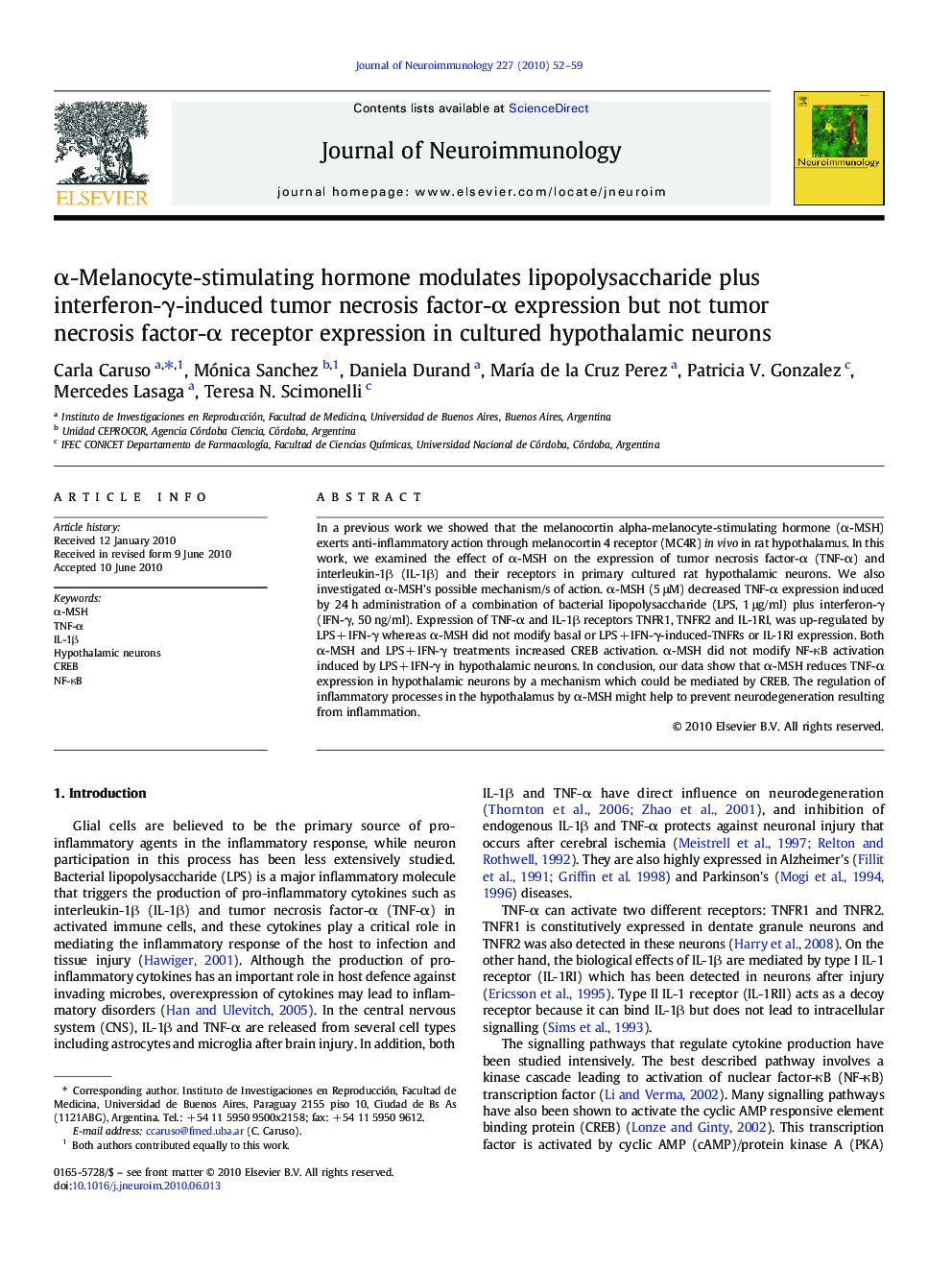| Article ID | Journal | Published Year | Pages | File Type |
|---|---|---|---|---|
| 6021019 | Journal of Neuroimmunology | 2010 | 8 Pages |
Abstract
In a previous work we showed that the melanocortin alpha-melanocyte-stimulating hormone (α-MSH) exerts anti-inflammatory action through melanocortin 4 receptor (MC4R) in vivo in rat hypothalamus. In this work, we examined the effect of α-MSH on the expression of tumor necrosis factor-α (TNF-α) and interleukin-1β (IL-1β) and their receptors in primary cultured rat hypothalamic neurons. We also investigated α-MSH's possible mechanism/s of action. α-MSH (5 μM) decreased TNF-α expression induced by 24 h administration of a combination of bacterial lipopolysaccharide (LPS, 1 μg/ml) plus interferon-γ (IFN-γ, 50 ng/ml). Expression of TNF-α and IL-1β receptors TNFR1, TNFR2 and IL-1RI, was up-regulated by LPS + IFN-γ whereas α-MSH did not modify basal or LPS + IFN-γ-induced-TNFRs or IL-1RI expression. Both α-MSH and LPS + IFN-γ treatments increased CREB activation. α-MSH did not modify NF-κB activation induced by LPS + IFN-γ in hypothalamic neurons. In conclusion, our data show that α-MSH reduces TNF-α expression in hypothalamic neurons by a mechanism which could be mediated by CREB. The regulation of inflammatory processes in the hypothalamus by α-MSH might help to prevent neurodegeneration resulting from inflammation.
Related Topics
Life Sciences
Immunology and Microbiology
Immunology
Authors
Carla Caruso, Mónica Sanchez, Daniela Durand, MarÃa de la Cruz Perez, Patricia V. Gonzalez, Mercedes Lasaga, Teresa N. Scimonelli,
